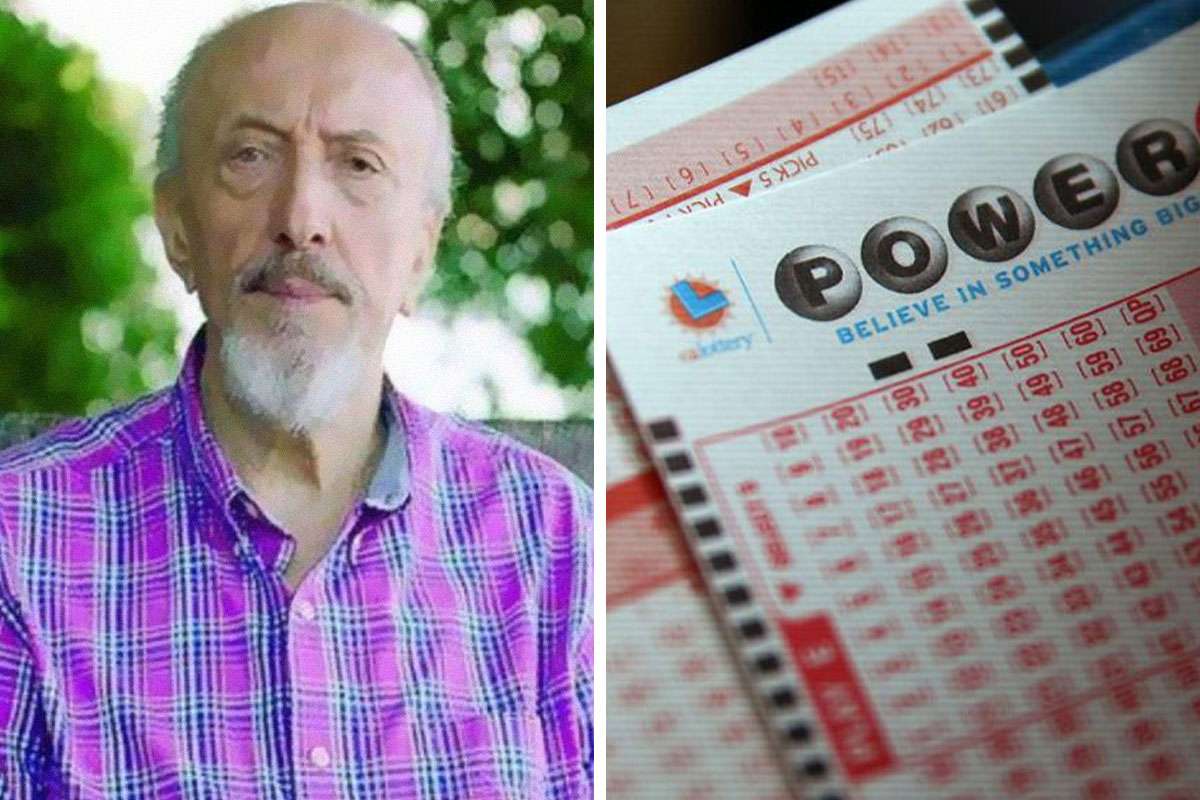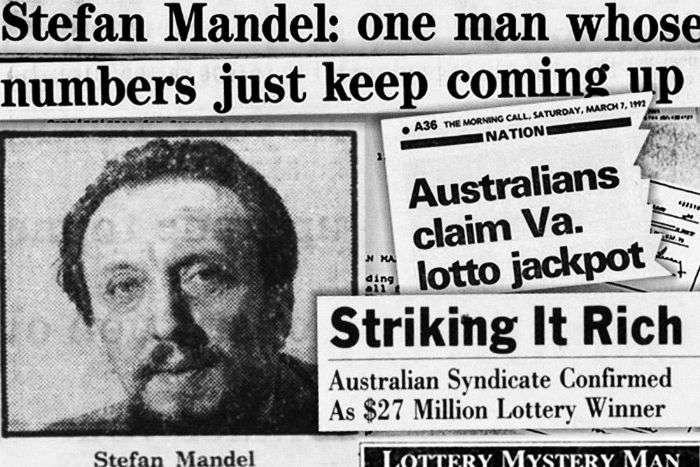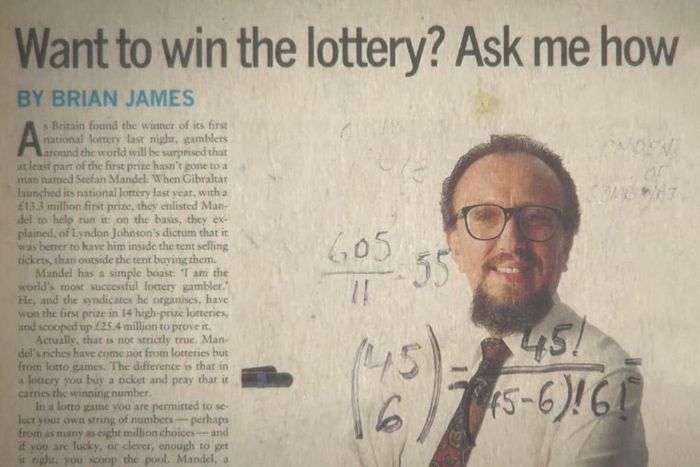Young Musician Stuns the Crowd with Captivating Violin Rendition of 'Can't Take My Eyes Off You'
Prepare to be captivated by this unforgettable performance! It's music, dance and smile fuse in magic.

Winning the lottery is a universal fantasy for many, often conjuring visions of luxurious holidays or extravagant purchases. Yet, such conversations are typically confined to the realm of imagination, given the slim odds of hitting the jackpot, let alone winning multiple times.
However, Stefan Mandel, a Romanian mathematician, defied the odds by claiming the lottery prize an astounding 14 times. Unlike most, Mandel attributes his success not to luck, but to a strategic approach grounded in mathematics.
Mandel devised a method known as "combinatorial condensation," which involved forming a syndicate called the International Lotto Fund. Collaborating with investors, Mandel targeted lotteries worldwide, identifying games with favorable odds and exploiting them using meticulously calculated combinations.

In a resurfaced interview on YouTube, the economist explained his theory, which he called 'combinatorial condensation'.
"Theoretically, anybody can buy all the possible combinations," he said. "Any high school boy or girl can calculate those combinations.
"Nobody has ever developed a logistical system to lodge such a large amount of play slips. We were the only winners and that was it."
For instance, in a Virginia lottery where players selected six numbers from a pool of 44, Mandel recognized over seven million possible combinations. Leveraging the convenience of home-printed play slips, Mandel's syndicate discreetly purchased a vast number of tickets, securing not only the jackpot but also substantial secondary prizes.
Despite suspicions from authorities, investigations found no wrongdoing on Mandel's part. He has since retired from lottery pursuits, now residing in Vanuatu. Reflecting on his approach, Mandel likened life's risks to a lottery, emphasizing calculated decision-making as his guiding principle.

At its essence, Mandel's approach was remarkably straightforward. Recognizing certain lotteries where the jackpot exceeded the cost of purchasing every possible ticket combination, he saw an opportunity to secure a win. With the financial backing and means to print an abundance of tickets, one could, theoretically, guarantee victory.
For example, in lotteries requiring selecting 6 numbers from 1 to 40, there are a staggering 3,838,380 unique ticket combinations. Mandel meticulously sought out draws where the jackpot surpassed the number of combinations by at least threefold. Putting theory into practice, he clinched the jackpot an astounding 14 times, amassing over $30 million with the assistance of investors. His actions were perfectly legal at the time, although Australian authorities viewed them as circumventing the lottery's intent.
Subsequently, laws were enacted to prevent groups from monopolizing ticket purchases, prompting Mandel to adapt his tactics. Establishing a lottery firm, he aimed to outmaneuver the system, yet the lottery system soon adjusted to counteract his methods.

In 1992, Mandel identified an opportunity in the Virginia lottery and rallied 2,500 Australian investors to contribute $2,500 each to purchase all available tickets, boasting a $27 million jackpot. Mandel anticipated winning the top prize, along with numerous secondary prizes, despite scrutiny from authorities, no charges were brought against him.
Today, replicating Mandel's strategies is impractical due to extensive legal changes, necessitating a reliance on either luck or innovative approaches to secure a victory.
Mandel was not the sole individual to exploit lottery systems. Gerald and Marjorie Selbee, for instance, capitalized on the Michigan lottery, Winfall, accumulating nearly $27 million in winnings over nine years. By strategically purchasing tickets in bulk during "roll-down" weeks, they reaped substantial profits. This tactic involved forming an investment group, which addressed logistical challenges such as printing and organizing tickets.
Nevertheless, winning the lottery may not always be the boon it appears. Beyond the allure of millions, winners contend with incessant pressures, legal entanglements, and the risk of personal struggles such as substance abuse.
Watch the video:
Sarah Whittaker
1yr ago
I love mathematics and statistics. My kudos to him. He deserves every penny of money he earned using his talent and skills.